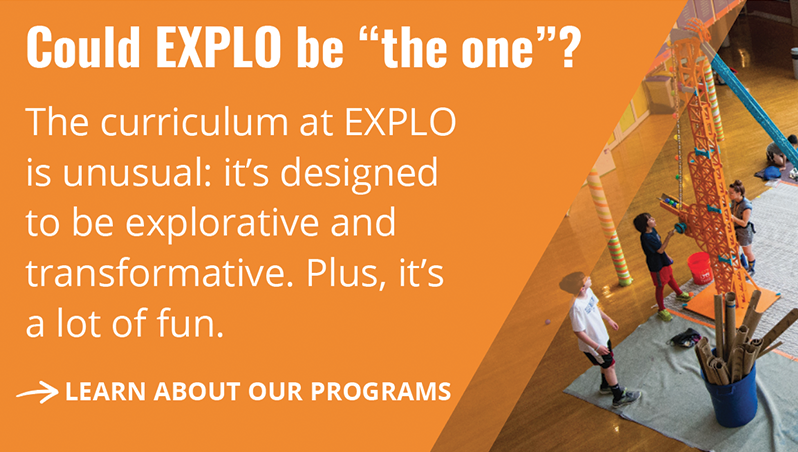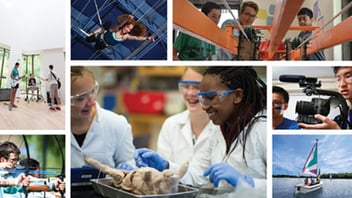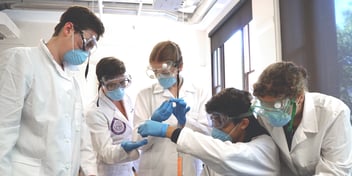How Educational Summer Camps Benefit Child Development
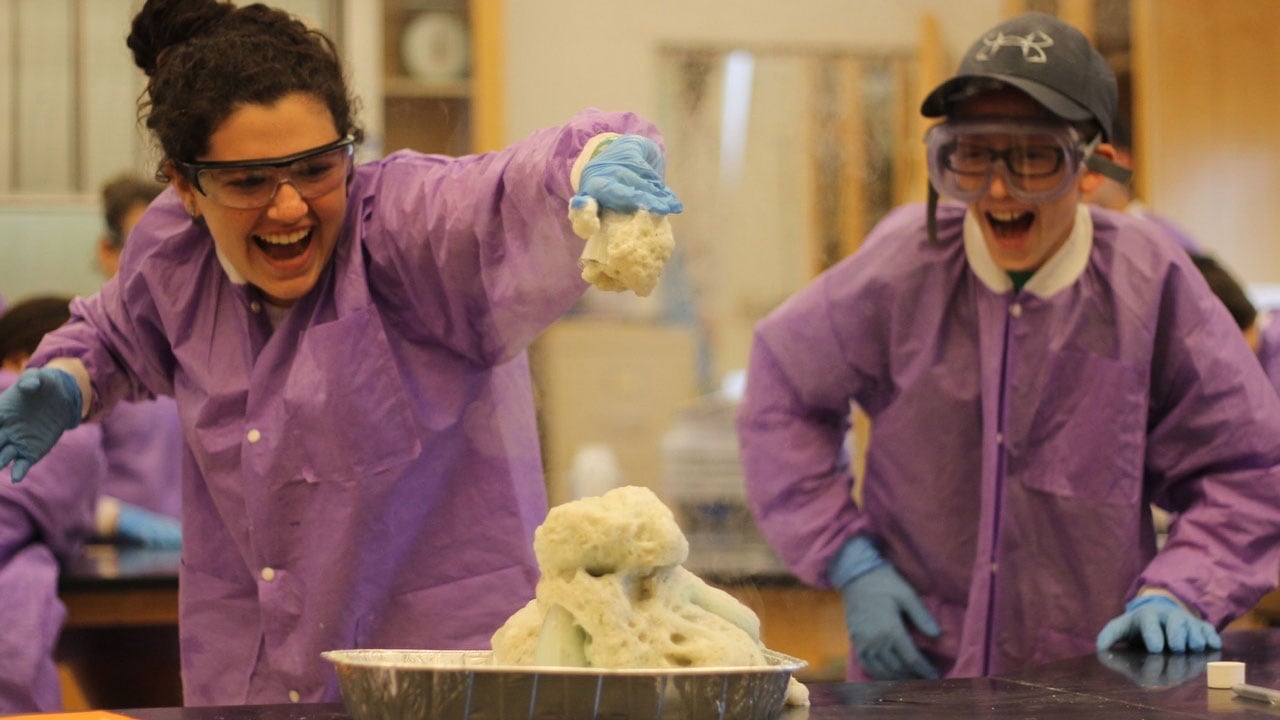
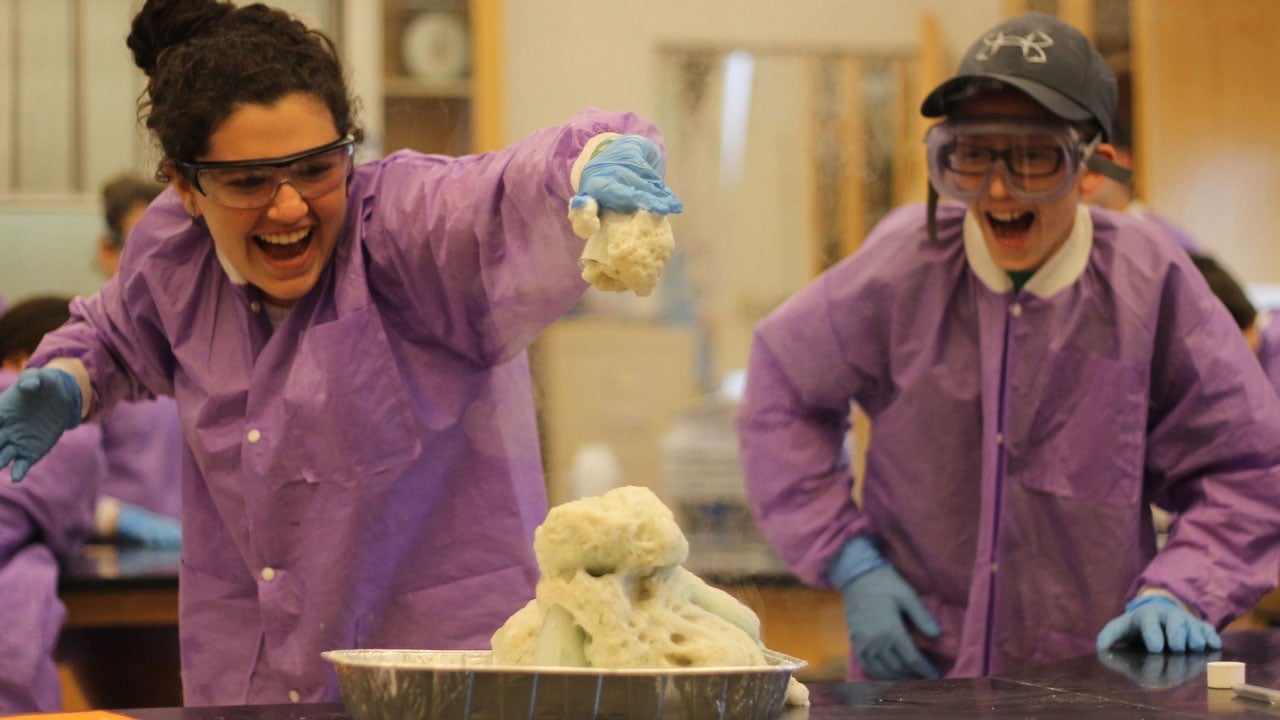
What skills and character traits will your child need to succeed in the world of tomorrow? It’s hard to imagine what the future will bring, as even now, change driven by technological, economic, social, and climatic forces continues to accelerate at a breakneck pace. But we have a few hints.
The World Economic Forum predicts the next decade will usher in what it calls the Fourth Industrial Revolution, a radical transition during which technology will “fundamentally alter the way we live, work, and relate to one another.” If the World Economic Forum is correct, the emergence of this altered world will coincide with your child’s emergence into adulthood and the workforce.
But the most remarkable thing about it is how few of the 10 skills are traditionally taught in America’s middle and high schools.
Helpfully, the Forum takes its prognostications a step further, offering up a list of “10 skills you need to thrive in the Fourth Industrial Revolution.” (The list was compiled with input from chief human resources and strategy officers from some of the world’s biggest employers.)
No one can say how accurate the Forum’s list will turn out to be. But the most remarkable thing about it is how few of the 10 skills are traditionally taught in America’s middle and high schools. In the course of your child’s schooling, they may practice some complex problem solving, develop some critical thinking skills, and occasionally exercise their creativity, but it will rarely be the main focus of their work.
Schools Are Siloed; Summer Camps Don’t Have to Be
The types of traits and abilities pinpointed by the World Economic Forum tend to fall through the cracks in American schools because teachers are, by design, focused on their specific subject areas and meeting the expectations and standards that come with them.
Consider the dilemma of the modern high school English teacher, for example. A conscientious educator may be well aware of expert predictions about job skills of the future, but those aren’t the skills they’ve been tasked with teaching. There is content they need to get through, which is the higher priority. They have to prepare their students for standardized tests and AP courses. There’s simply not much time to focus on emotional intelligence and cognitive flexibility.

This is where educational summer camps can come in. Educational summer camps are inherently more flexible. They are not attempting to have all participants meet some sort of graduation requirement or pass particular exams.
The best summer programs give participants opportunities to combine disciplines in unexpected and exciting new ways. Campers are given the freedom to dig into their interests and discover new ones. They can work together to solve problems, applying their knowledge in hands-on scenarios, guided by creative and experienced experts in their fields.
In many ways, the right summer camp can provide opportunities for important skill development in areas for which schools are structurally unsuited.
Here are a few of the ways a good educational summer program can help your child develop the skills of the future.
Educational Summer Camps Help Children Develop Socially
The World Economic Forum’s list features people skills prominently: people management, coordinating with others, emotional intelligence, service orientation, and negotiation.
From the minute your child arrives at a residential summer camp, they will have to start using social skills they never practiced before. For most of the campers, it’s their first time in an environment where they don’t know anyone. They have to negotiate ground rules with bunkmates/roommates, set up a new support network, communicate respectfully with people from different backgrounds, and find their places as both contributors to and leaders of teams.
 A good educational summer camp will help its participants through these sometimes challenging first few days, with instructors and residential staff who are sensitive to the needs of young people who are developing their social abilities.
A good educational summer camp will help its participants through these sometimes challenging first few days, with instructors and residential staff who are sensitive to the needs of young people who are developing their social abilities.
For example, here at EXPLO, we understand that most first-time campers will have no experience living with roommates. So, we help them take the first steps towards mutual understanding by providing a list of questions for roommates to ask each other on their first day. The list covers everything from setting the alarm clock and pulling the shades down to whether or not it’s OK to sit on each others’ beds.
With those practicalities established, we find roommates are in a better position for successful cohabitation and developing a respectful — perhaps even friendly — relationship. These people skills will serve students well as they head to college and out into the world.
Educational Summer Camps Help Combat ‘Brain Drain’
We’ve written before about the advantages of active learning. Active learning is just what its name implies. Students are active participants in their education, as opposed to passive consumers of classroom lectures and textbook chapters.
Researchers have shown that active learning helps students retain information longer (1.5 times longer, to be exact) than traditional lecture-based classes.
Active learning is hands-on and experiential. For example, instead of sitting at their desks doing math problems or worksheets, students might engage in an elaborate multi-day quest that asks them to battle a cagey foe. They leave the classroom. They travel across campus in search of clues -- clues that require deciphering and solving math problems to unlock the next step in conquering the villain. They delegate roles and work in teams. Each clue takes them one step closer to their conquest. They have the opportunity to use their imaginations and live a hero’s journey. It’s fun, light-hearted, and playful. It fully engages them in mind, body, and spirit. It’s something they won’t forget and along the way they have learned a lot of math AND they appreciate that math is the tool that enabled such a rich and memorable experience.
Researchers have shown that active learning helps students retain information longer (1.5 times longer, to be exact) than traditional lecture-based classes. This can have a powerful effect over the summer. “Brain drain,” the loss of learning that can occur between academic years, is a proven phenomenon.
High-quality educational summer camps, such as EXPLO, practice active learning throughout their academic programs. By keeping their participants’ brains active, their creativity engaged, and putting their classroom knowledge into real-world action, educational summer programs can help children retain and build on what they learn each school year.
In a typical active learning-based course at EXPLO, students might:
-
Create their own role-playing game, practicing creativity, teamwork, logic, and acting.
-
Use scientific techniques to uncover clues at a “crime scene.”
-
Work cooperatively to rebuild society and the economy after a zombie apocalypse.
-
Plan, execute, and troubleshoot a robotic mission to another planet.
Educational Summer Camps Encourage Perseverance and ‘Grit’
From a child’s perspective, one of the glorious things about an educational summer camp is, if they attempt something, and fail, they can simply pick themselves up and try again. It won’t kill their GPA, it won’t disappoint their parents and teachers, and it won’t let down their teammates.
Children find out what they’re made of at summer camp because the pressure is off. No one pigeonholes them. A math geek can try acting. An artist can try coding. A jock can try debate. And if it’s difficult at first, they have the space, resources, and community support to keep at it until they get it.
Educational researcher Angela Duckworth says students are more likely to persevere when “they don't believe that failure is a permanent condition." This is exactly the environment children will encounter at a high-quality educational summer camp such as EXPLO.
How to Find an Educational Summer Camp
An educational summer camp can help your child develop abilities and a temperament that will help them succeed in a future that is simultaneously uncertain and thrilling. There are thousands of educational summer programs in the United States, but not every one of them will be a good fit for your child.
Click below for your free guide to a 10-step process that will help you wade through a sea of options and arrive at the decision that is right for you and your child.

